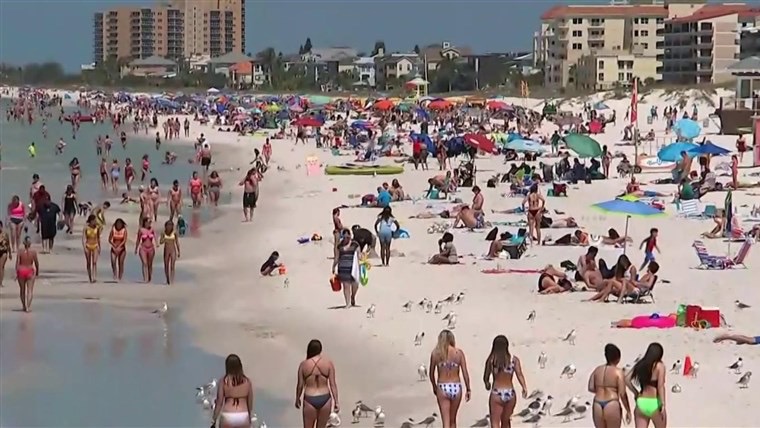Should there be a Fine for Non Social-Distancers?
April 17, 2020
Mid-March was a strange time for every American. Most schools had closed, states had begun shutting down all non-essential establishments, and citizens were beginning the first stages of social-distancing and self-isolation. Fining for disregarding social distancing should be talked about more seriously because people don’t understand the damage they are doing by going out of the house, disregarding their state’s efforts in slowing the spread of COVID-19.
America has taken relative precautions, like banning flights, domestic and international, but it is nothing compared to Spain, which has one of the highest recorded number of COVID-19 cases, who put bans on leaving the house for non-essential purposes, such as for food or medical attention. However, the United States does not seem to think this is important.
It has now become somewhat taboo to leave one’s house to go to the park, hang out at a friends house, or otherwise not pay attention to the rules of social-distancing. This doesn’t seem to be enough to discourage the actions which is why there needs to be more government involvement.
One emotionally despaired group is that of high school seniors. Senior year is one of the most memorable, nostalgic times in one’s life, but the graduating class of 2020 will remember something different.
One such Senior from Oakdale High School, Ava O’Keefe, explains: “I can’t hang out with friends anymore…The possibility of not having a graduation is just awful.”
O’Keefe agrees with fining those not following social distancing guidelines: “This is a serious matter and so many people around us are dying. It’s not just affecting older people, it’s affecting kids our age, too.”
Experts say the next extreme step in slowing the virus is to keep America locked down, to freeze them in place for 14 days. This way, the symptoms can be detected and caught before the spreading can go further according to Donald G. McNeil Jr. from the New York Times.
Mrs. Liz Davis, an Oakdale parent, opposes the fines stating, “Fining people who are already experiencing financial hardship is wrong. This is also a country that believes deeply in personal freedom, liberty, and the pursuit of happiness. Laws that infringe on that have no business in this country.”
Davis speaks the opinion of many American citizens in this hard time, who want more help for the elderly and more vulnerable, with less restrictions on the population as a whole. “Best thing to do is for authorities to continue to remind and educate people on why we are staying home and social distancing.” Davis stresses, “The primary reason: we don’t want to spread the virus and have our medical resources be overwhelmed… Saving lives of our fellow citizens is what should motivate each of us to follow the social distancing guidelines.”
Overall, to have people realize the extent of their actions, consequences need to be put in writing. This lockdow isn’t just an extended spring break or early summer, it is the result of a pandemic and the sooner the population realizes that, the sooner a cure can be found.





























